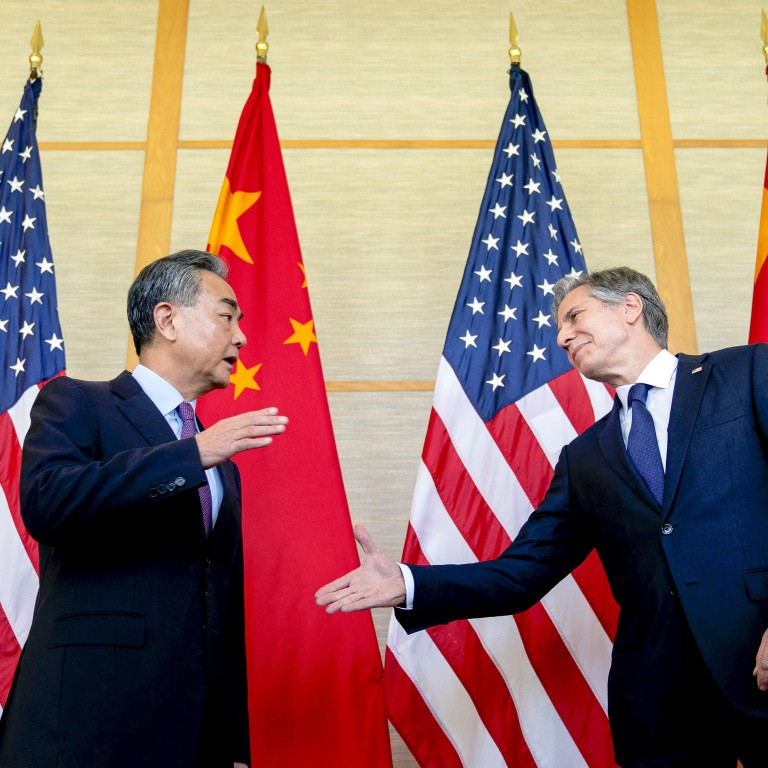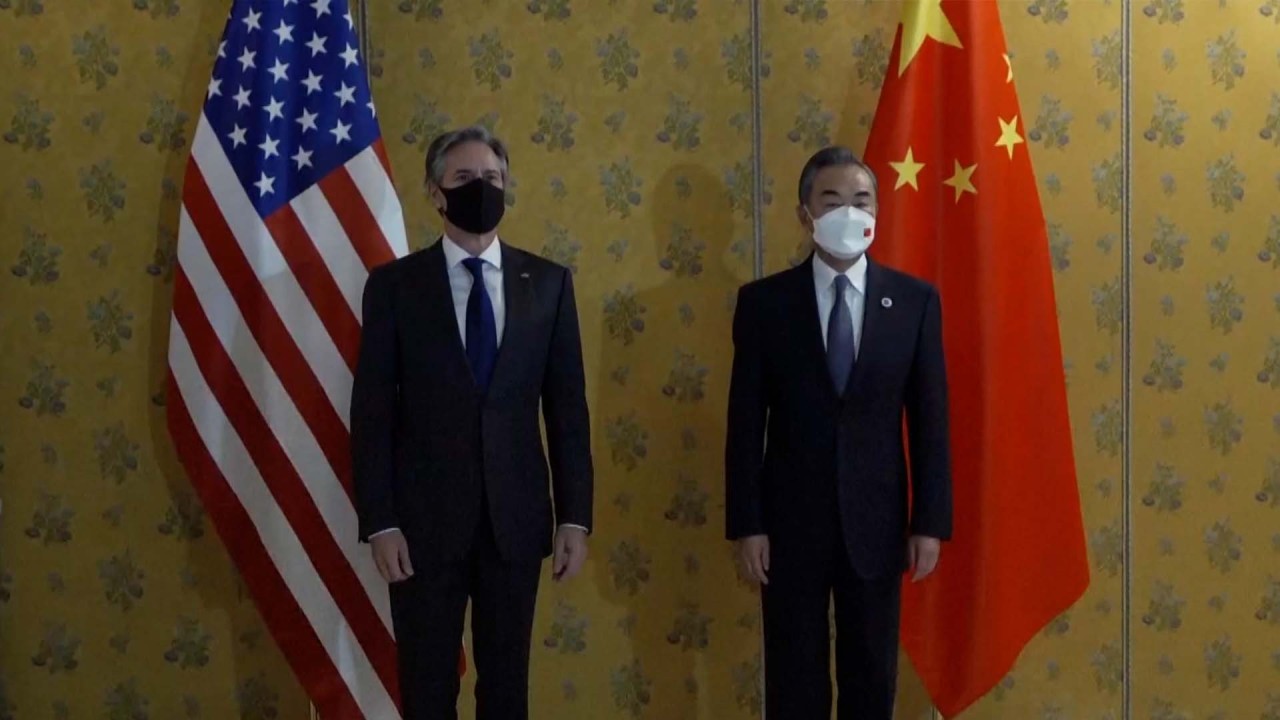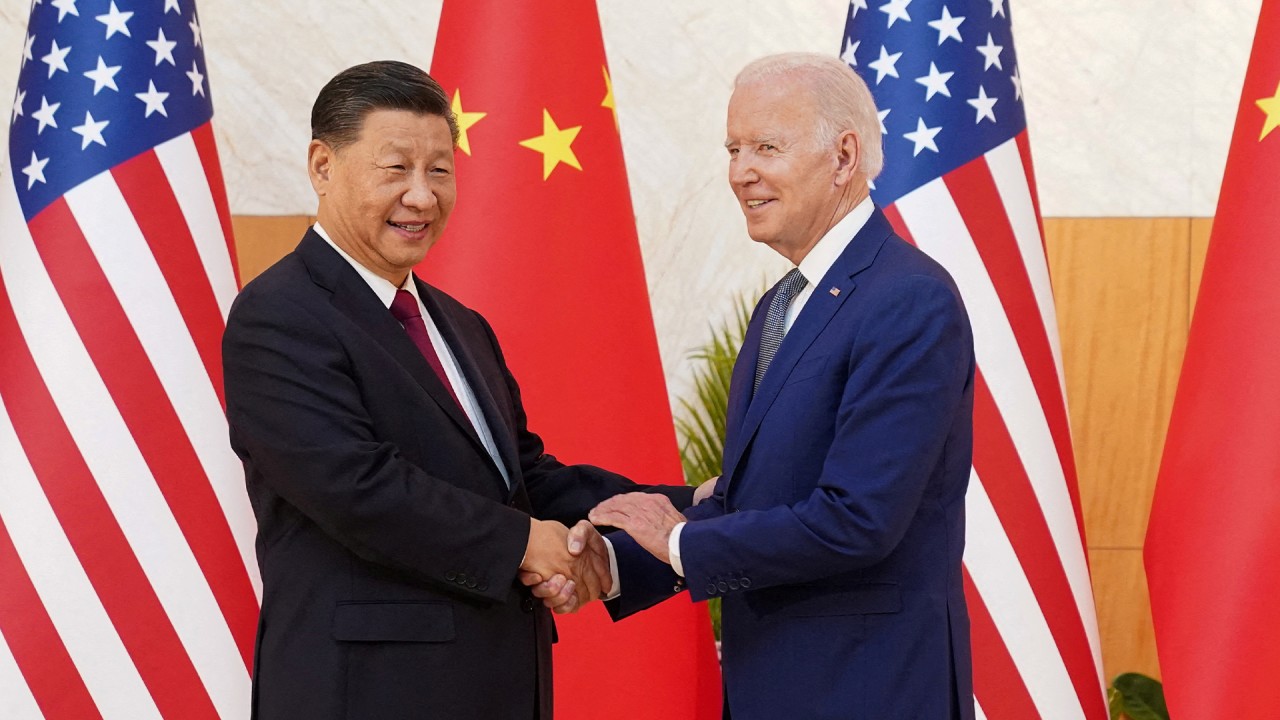
China-US relations: Wang Yi warns of ‘head-on collision’ threat over Taiwan
- In a call with Antony Blinken, Wang says efforts to suppress Beijing and China’s development will not work
- Warnings come just a month after talks between the countries’ presidents appeared to stabilise the relationship
The stern warnings were issued during a telephone call on Friday with US Secretary of State Antony Blinken, who is expected to visit China early next year.
Wang’s tough rhetoric underlines the scope of decline in bilateral ties and the lack of strategic trust between the rival powers, damping hopes for a détente following a summit last month, observers say.
According to a Chinese statement, Wang described President Xi Jinping’s meeting with US counterpart Joe Biden in Bali as a “positive signal” that tried to pull bilateral ties “out of serious difficulties” and return them to “a healthy and stable track”.
“However, it must be pointed out that the US cannot engage in containment while seeking dialogue, or stab the knife while discussing cooperation,” Wang was quoted as saying.
“This is not reasonable competition, but unreasonable suppression; it is not about controlling differences, but intensifying conflicts. In fact, it is still the old routine of unilateral bullying.
“This did not work in China in the past, and it will not work in the future.”
China-US relations: Beijing vows to ‘properly handle’ differences over Taiwan
Vowing to “resolutely defend” China’s sovereignty, security and development interests, Wang, a Politburo member and President Xi Jinping’s top foreign policy aide, urged Washington to heed Beijing’s concerns and “stop containing and suppressing China’s development”.
“In particular, it must not continue to challenge China’s red line by ‘slicing sausages’”, he said, referring to Beijing’s accusations that Washington is hollowing out its decades-old one-China policy on Taiwan through arms sales and high-level official exchanges.
Tensions later eased and in a sign of thawing ties, the two sides resumed dialogue and communications on climate and other fields that Beijing suspended after Pelosi’s visit.
Early this month, US assistant secretary of state for East Asian and Pacific affairs Daniel Kritenbrink and National Security Council senior director for China and Taiwan Laura Rosenberger held talks with Chinese vice foreign minister Xie Feng in Langfang, making preparations for Blinken’s first China trip.
During Friday’s conversation, Wang described the Langfang meeting as “in-depth and constructive”, saying both sides should “step up consultations” and “promote dialogue at all levels”.
But he put the blame squarely on the US for the worst downward spiral in bilateral ties and warned that Washington’s “zero-sum” thinking would only lead to “a head-on collision”.
Compared to Beijing’s detailed readout, the US State Department issued a terse statement, saying Blinken “discussed the need to maintain open lines of communication and responsibly manage the US-PRC relationship”, referring China by its official name.
“The secretary also raised concerns about Russia’s war against Ukraine and the threats it poses to global security and economic stability. They further discussed the current Covid-19 situation, and the secretary underscored the importance of transparency for the international community,” it said.
Speaking at the State Department on Thursday, Blinken said Washington was ready to help all countries on Covid, including China, but said Beijing had not asked for American assistance.
“We want to see China get this outbreak under control,” Blinken said.
He added that the US was worried about the rise of new coronavirus variants and China’s outbreak had “clear implications for the global economy because of China being shut down on multiple levels”.
Blinken was quoted in the Chinese statement as reaffirming the US one-China policy and its opposition to Taiwanese independence.
Wang also repeated China’s stance on Russia’s invasion of Ukraine, according to the Chinese statement, stressing Beijing’s support for efforts to “promote peace and talks” and its willingness to “play a constructive role in resolving the crisis in our own way”.
Their exchange on the situation in Ukraine came after Xi stressed the importance Beijing attached to its relations with Russia during a meeting on Wednesday with the visiting former Russian president Dmitry Medvedev.
Xi also said he hoped all sides could remain rational and begin talks, even though China has refrained so far from condemning Russia’s aggression or offering support for Western sanctions.
Robert Daly, director of the Kissinger Institute on China and the United States at the Washington-based Wilson Centre, said the Bali summit was “not a major turning point” and cautioned against rosy expectations about bilateral ties in 2023.
“It is much too soon to speak of US-China détente. Wait until the next provocation or crisis, which probably isn’t far off, to gauge whether the resumption of personal diplomacy has any meaningful impact on Chinese or American behaviour,” Daly said.
“The factors that have brought the US and China into a new cold war are deep, structural, and still in effect.”



